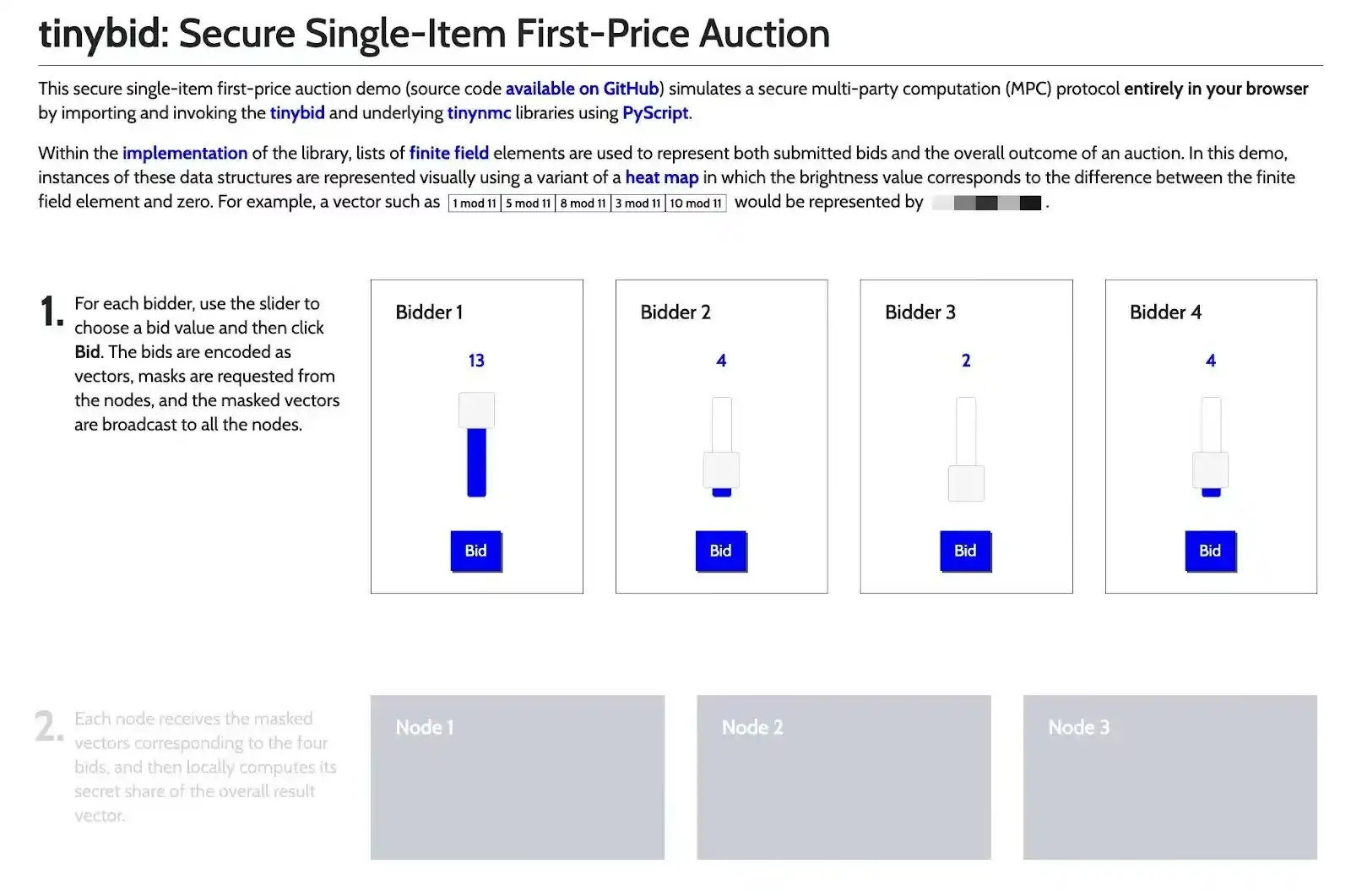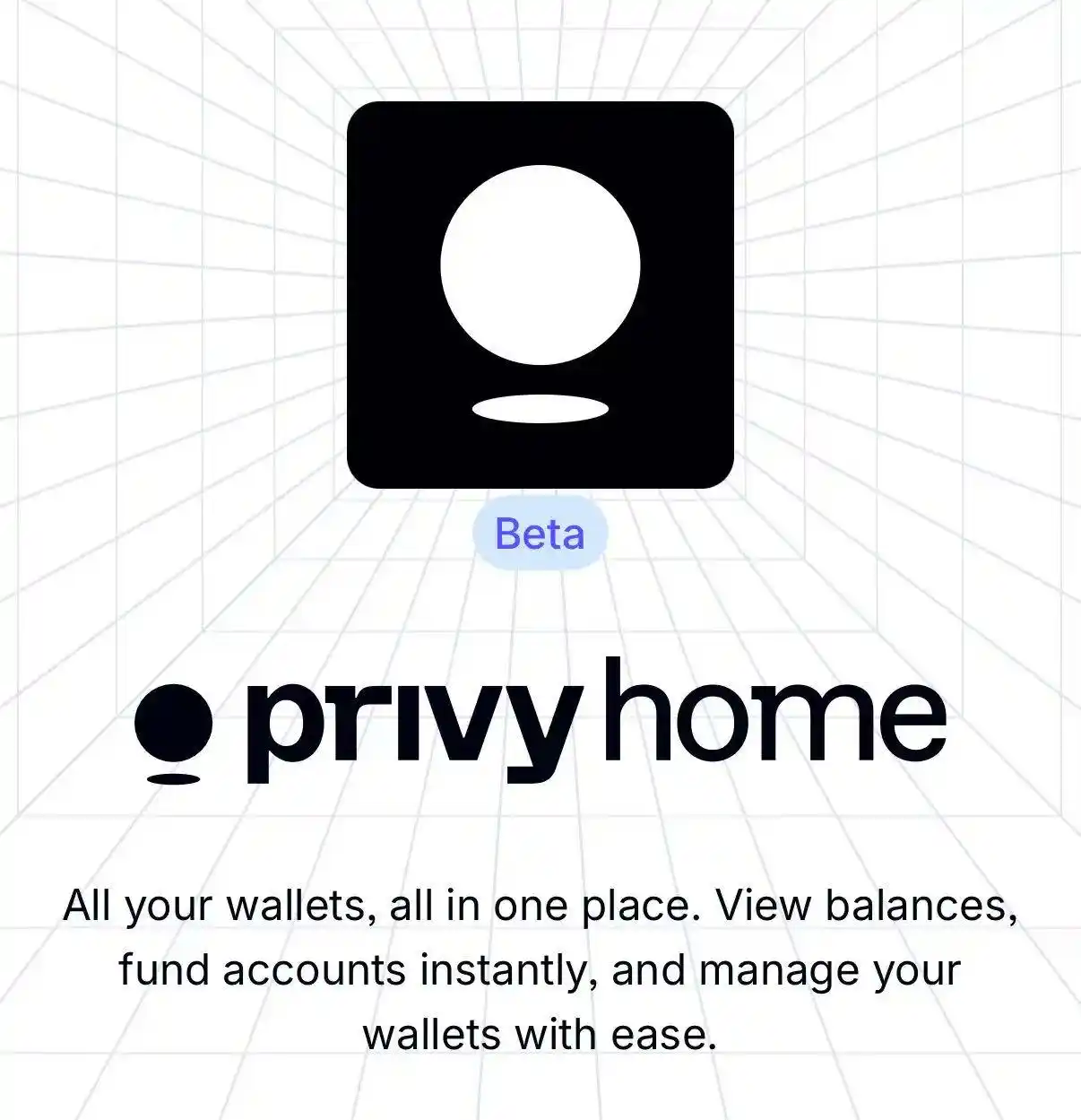ZEC continues to rise, what are some privacy-focused projects worth paying attention to in the space?
Betting on privacy is actually betting on freedom
Original Article Title: Crypto's Privacy Powerhouses
Original Author: @blocmates
Translation: Peggy, BlockBeats
Editor's Note:
In the technological evolution of the crypto world, privacy has never truly left. Today, as on-chain activities become increasingly frequent and user bases expand, privacy once again emerges as an unavoidable core issue.
From the idealism of the cypherpunks to the implementation of technologies such as zero-knowledge proofs, fully homomorphic encryption, secure multi-party computation, and the gradual maturation of a series of user-centric privacy applications, we are witnessing an era of "privacy reshaping."
This article attempts to answer a simple yet important question: In an on-chain world where all actions can be recorded, analyzed, and tracked, how do we preserve our own space?
Below is the original article:
Crypto and Privacy: The Starting Point of Freedom
If history can provide a reference, then freedom always finds a way to prevail. In the crypto field, however, betting on privacy is essentially betting on freedom.
Hey, let's be honest, as long as you have on-chain investigative skills like ZachXBT (and patience), crypto transactions can be traced—you already knew that, right?
Today, we can even find out who emptied your wallet: it could be a 78-year-old grandma or those North Korean hacker groups that keep the entire crypto community on edge.

Yes, those "bad scenarios" mentioned earlier do indeed exist, but the reason they can be exposed is that on-chain activities are public.
Yes, the so-called "public ledger" is truly public.
While today's younger generation may not be very familiar, those "old crypto folks" all understand: Bitcoin and the entire origin of the crypto world actually stem from the cypherpunk movement—an ideology that is privacy-centric and aims to build an open society.
It is this very concept that gave rise to David Chaum's privacy-oriented digital currency, Digicash, which employed blind signature technology; and also led to Wei Dai's proposal of a privacy-centric, decentralized payment system known as b-money (sounds like a rapper's name, doesn't it?).
Later, Satoshi took another step forward, embedding a certain degree of privacy design in a fully transparent ledger. Bitcoin relies on pseudonymous addresses and cryptographic hashes, rather than real names or identity information, creating an "anonymous" illusion.
However, this illusion did not last long. With the rise of smart contracts, people's focus shifted to programmability, and privacy gradually became marginalized.
Now, as encryption experiences a resurgence, we are back to the original question: Is privacy still a core principle of the crypto world?
The discussion of privacy is no longer limited to "sending and receiving funds on a public ledger," but has extended to various aspects of on-chain applications.
In today's article, we will explore what privacy means in the crypto world, what dimensions it encompasses, what privacy-focused products exist, what we should pay attention to, and our thoughts on the future of crypto privacy.
Get ready, let's dive in.
What Does Privacy Mean in Crypto?
The best way to understand privacy is to look at it from the perspective of traditional finance (TradFi).
In the traditional financial system, privacy means that your personal data will not be disclosed publicly, and only authorized institutions can view it. This includes your biometric information, transaction records, account balances, and so on.
In the crypto world, the core idea of privacy is: to protect users' personal data in on-chain transactions. True privacy means that data is only visible and understandable to the user or their authorized parties.
Many people confuse "privacy" with "anonymity." In crypto culture, anonymity is indeed closely related to privacy, but the two are technically different.

For example, privacy focuses on hiding transaction details, such as transaction amounts, transaction parties, and other relevant information; while anonymity refers to hiding the identities of transaction participants.
A clear comparison is Zcash and Monero. Zcash uses encryption technology (like zk-SNARKs) to hide transaction amounts, while Monero uses stealth addresses and ring signature technology to pseudo-anonymize identity information.
However, for the purposes of this article's discussion, we will consider privacy as a broader concept that also includes anonymity.
Why is Privacy an Important Issue in the Cryptocurrency World?
As mentioned earlier, the foundation of the crypto industry stems from the cypherpunk spirit—a pursuit of privacy and decentralization aiming to break free from national-level control and achieve true freedom.
However, today, with the rapid expansion of private surveillance companies, increasing financial influence, and the risk of data misuse brought about by AI technology development, the alarm regarding privacy is ringing louder than ever before.

Without adequate privacy protection, data on the blockchain could expose users' spending habits, wealth distribution, political donation records, and transactional relationships—and once this information falls into the wrong hands, it could be used for extreme manipulation or exploitation.
Another crucial reason for privacy in the crypto sphere is that without privacy-preserving technologies, cryptocurrency cannot truly achieve censorship resistance.
Privacy can shield individuals and organizations from coercion, enabling them to freely participate in permissionless on-chain financial systems.
Privacy also ensures users' safety in real life and data security on-chain. Particularly in cases where a public transaction graph could expose high-value targets, users face risks of hacking, ransom, or even physical threats—a type of event that has become all too common in recent years.
Privacy-Enhancing Technologies (PETs)
There are many ways to achieve privacy, with each technology designed for specific use cases, but their ultimate goal is consistent: to provide end users with privacy protection and data security.
Various technologies have their own advantages, trade-offs, and adoption levels. Below, we introduce several mainstream Privacy-Enhancing Technologies (PETs) and their workings in non-technical terms:
1. Zero-Knowledge Proof (ZK)
As the name suggests, a zero-knowledge proof is a technology that can "prove something is true without revealing specific details."
This mechanism involves two roles: the Prover is responsible for proving a statement to be true, and the Verifier confirms its validity without accessing the underlying data.
ZK is an encryption privacy-enhancing technology, mainly existing in two forms: zkSNARKs (Zero-Knowledge Succinct Non-Interactive Argument of Knowledge) and zkSTARKs (Zero-Knowledge Scalable Transparent Argument of Knowledge).
ZK Technology supports various privacy use cases, such as: Confidential Transactions (hiding transaction amounts); Asset Proof (no need to expose addresses or sensitive data); Privacy validation in decentralized identity systems; Private Smart Contracts, etc.
2. Ring Signatures / RingCT
If you've heard of privacy-focused cryptocurrencies with privacy protection enabled by default, they most likely use Ring Signature technology. The most typical example is Monero, a privacy coin known as a "dinosaur-class" coin.
The principle of Ring Signatures is that users can initiate a transaction within a group without exposing the specific signatory, thereby hiding the sender's identity through mixed transactions.
This method is very suitable for achieving anonymity, allowing users to transact on-chain without worrying about being tracked by an on-chain detective like ZachXBT.
For this reason, Monero has faced many compliance challenges, such as delisting from exchanges and regulatory pressure. In contrast, Zcash offers two options: transparent addresses (t-addresses) and private addresses (z-addresses). Exchanges can choose to support only transparent transactions to meet compliance requirements.
3. Fully Homomorphic Encryption (FHE)
If you've ever passed a note in high school with encrypted characters that only your friend could decipher, you've actually encountered the basic concept of FHE.
FHE is an encryption technology that allows for computations without decrypting the data.
This means that users can send sensitive data without worrying that validators will see the specific content.
Although FHE leans more towards privacy protection rather than anonymity, it is one of the most powerful privacy technologies in the blockchain space.
4. Trusted Execution Environment (TEE)
If you are a longtime reader of blocmates, you may already have some understanding of TEE. We previously wrote an article specifically introducing its principles.
TEE is a hardware-based privacy-enhancing technology that protects data through a secure enclave in the processor or network, using encryption keys to ensure data confidentiality and integrity.
A common example is facial recognition on a smartphone:
When you set up facial recognition, the device captures your facial features through the camera, encrypts them, and transmits them to the TEE for processing. The raw data does not leave the TEE in plaintext. Within the TEE, this data is transformed into a mathematical template, securely stored for subsequent identity verification.
5. Multi-Party Computation (MPC)
In the world of cryptography, some operations require collaboration among multiple parties. MPC is a privacy-enhancing encryption technology designed specifically for this purpose.
For example, an AI product may require multiple models to collaborate on inference to optimize results; a DAO may want to make governance decisions without exposing each member's vote; or in an on-chain auction event, bidding needs to be conducted without revealing the bids—these are all typical applications of MPC.
MPC allows multiple participants to jointly compute a function (such as signing a transaction or verifying a balance) without exposing their respective input data.

In addition to the aforementioned Privacy-Enhancing Technologies (PETs), there are other methods such as coin mixers, homomorphic encryption, and composable privacy. The latter involves combining multiple privacy tools to achieve a stronger protective effect.
Some projects focus on directly building products based on these cryptographic technologies, while others are dedicated to constructing underlying privacy infrastructure to support cryptographic applications.
Key Privacy Infrastructure Projects
There are various ways to implement cryptographic privacy, and there is no one-size-fits-all solution for all scenarios.
This means that different projects or teams will focus on different dimensions of PETs, building for specific applications and use cases. Here are some privacy infrastructure projects worth paying attention to:
1. Nillion
We have previously written an article specifically introducing Nillion's technology and use cases. If you are interested, you can delve deeper.
In simple terms, Nillion's infrastructure is dedicated to a decentralized trust mechanism for sensitive data. Its core technology, Blind Computer, ensures data security through various PETs, including Multi-Party Computation (MPC) for NilDB and a Trusted Execution Environment (TEE) for AI inference (NilAI/NilCC).
Nillion has also developed some very interesting consumer-grade applications on its infrastructure, which we will introduce later in the article.
2. Succinct
The airdrop by @SuccinctLabs may have changed some people's fortunes and left others dissatisfied, but their technology is definitely worth paying attention to.
Succinct Labs promotes Zero-Knowledge Proofs (ZK), where their technology allows for proofs on any software. Although not privacy-focused per se, their core product - the SP1 ZK Virtual Machine - can be used for client-side privacy.
For example, Hibachi has used this technology to achieve privacy processing of order flow: while the central operator (Hibachi) can still see the data, external observers cannot.
3. Zama
@zama_fhe is a leader in Fully Homomorphic Encryption (FHE) technology, focusing on supporting confidential applications.
Zama has built a privacy-preserving blockchain protocol that can be integrated with the Solidity network, supporting privacy-preserving DEX transactions, confidential lending protocols, and privacy-preserving tokenized applications.
4. Zcash
Frankly speaking, Mert, by successfully "awakening" @Zcash (ZEC), is running for the annual KOL award.
Zcash is one of the OG projects in the privacy encryption field, being the first to apply ZK cryptography to peer-to-peer confidential payments. It uses zkSNARKs to achieve optional privacy transactions (shielded transactions).
The technology itself is not complex, but combined with a Bitcoin-like tokenomics model, Zcash has regained attention at a time when privacy is back in focus, especially for those who still believe in the cypherpunk ethos.
5. Monero
Aside from having a community of "believers" due to its token (XMR), @monero itself is also a privacy technology project worth noting.
Monero achieves complete transaction privacy through three encryption technologies:
(1) Ring Signatures: Mixing the real signer with a group of decoy signers to hide the sender's identity;
(2) Stealth Addresses: Generating one-time addresses for each transaction to avoid associating receiving addresses with wallets;
(3) Ring Confidential Transactions (RingCT): Hiding transaction amounts through encrypted commitments and range proofs while ensuring input equals output to prevent double-spending.
Unlike Zcash, Monero's privacy is mandatory, and there is no concept of "optional shielded transactions." This has also led to significant compliance challenges, with many centralized exchanges delisting Monero as a result.
6. Arcium
Remember when we mentioned that privacy is not a one-size-fits-all solution, especially at the infrastructure level?
@Arcium understands this very well.
Arcium is a multi-party computation network that has built multiple protocols. One of its general-purpose protocols is called Cerberus, which adopts a very interesting security model.
Cerberus operates under the "dishonest majority" trust model and features cheating detection and identifiable abort mechanisms. This means that as long as one node is honest, privacy is preserved. The system can also identify dishonest nodes, expel them, and apply penalties.
This is in stark contrast to most protocols that require an "honest majority" (i.e., more than 51% of nodes being honest).
Another protocol, Manticore, is designed for AI scenarios. While its security assumptions are not as strong as Cerberus, it is suitable for environments with access control, such as AI training in trusted setups.
Similar to Nillion, Arcium also supports some very interesting consumer applications, which we will cover in the next section.
Consumer Projects Built on Privacy Infrastructure
One of the charms of encrypting privacy is that it is not just an abstract concept at the technical level but also a product that users can experience firsthand.
We don't need to operate at the low code level like developers, but we can directly use these applications built on privacy infrastructure to experience the benefits they bring.
Here are some consumer-facing privacy applications worth noting:
1. Hibachi: Privacy-Preserving Contract Transactions
Not everyone is willing to have their holdings or liquidation records made public.
Remember the James Wynn incident? Whether he was a pawn in a larger game or the event was genuine, he was "hunted" and liquidated due to the exposure of his holdings on Hyperliquid. This highlights the need for privacy in on-chain contract transactions.
@hibachi_xyz is leveraging Succinct's ZK technology (SP1) and Celestia's data availability (DA) module to build a new architecture that combines on-chain and off-chain elements, validating CLOB (Central Limit Order Book) on Celestia's blob.
As a privacy-focused project, Hibachi has also optimized for execution speed, with latency as low as 5 milliseconds. The project has not yet issued a token but is definitely worth keeping an eye on.
2. NilGPT: Privacy-First AI Chatbot
Let's be honest, AI can sometimes be a bit unsettling... especially when it starts referring to itself as "I."
But the technology itself is really cool, especially all the creative use cases people come up with on prompts.
However, many individuals tend to "over-share" when interacting with AI chatbots, forgetting that behind those conversations lie the "surveillance eyes" of centralized systems like ChatGPT, Gemini, Grok, and more.
NilGPT is an AI chatbot supported by Nillion's privacy infrastructure, designed to protect users' conversation privacy. Users can confidently interact with the AI without worrying about their data being collected or analyzed by third parties.

This is precisely the positioning of @nilgpt_ — a privacy-focused AI chatbot built on Nillion's secure computation infrastructure, aimed at safeguarding the security of user conversations and data without collecting or exposing any personal information.
NilGPT uses Nillion's Blind Compute Layer to encrypt and process data between distributed nodes, ensuring that no single entity can access plaintext inputs or outputs.
3. Railgun: On-Chain Anonymous Shield
If you're looking to achieve true anonymity on the blockchain, Railgun is a project worth considering (quietly supported, it's also one of Vitalik's privacy projects).
@RAILGUN_Project is an on-chain privacy ecosystem based on zero-knowledge encryption, built to work with Ethereum-compatible smart contract systems, supporting private transactions and DeFi operations without compromising security or composability.
Railgun is fully decentralized, governed by the Railgun DAO, and uses zk-SNARKs technology to encrypt on-chain balances, transactions, and smart contract execution. It currently supports chains such as Ethereum, Polygon, BSC, and Arbitrum.
It is important to note that unlike traditional coin mixers, Railgun achieves complete anonymity through ZK encryption while seamlessly integrating with existing dApps and liquidity systems.
4. Privy Home: Privacy-Focused Wallet Management Hub
Frankly speaking, Privy may be one of the closest projects in the crypto space to achieving "product-market fit" at the moment.
Privy Home, developed by @privy_io, is a secure control layer and unified management hub for managing embedded wallets across various crypto applications. It provides the foundational wallet infrastructure for the on-chain experience, helping users securely manage their identities and assets across multiple applications.

Privy allows users to track, top up, and manage assets from multiple apps on one platform, employing key sharding and Trusted Execution Environment (TEE) technology for security.
It enhances the self-custody experience and cross-app interoperability, making wallet management smoother while avoiding exposing keys to the applications themselves.
5. Umbra: Stealth Mode on Solana
This year, Solana has emerged as a hub for on-chain activities, with active fund flows and abundant opportunities. However, this has also led to increased attention, surveillance, and scrutiny of user behavior.
This is where products like @UmbraPrivacy have become crucial.
Umbra is a privacy protocol that provides "stealth mode" for Solana, enabling on-chain private transfers through Arcium's privacy network to grant users true financial privacy on Solana.
Currently, Umbra has launched private transfer functionality and plans to further develop a comprehensive Solana privacy DeFi hub, including private exchanges, Solana-Zcash cross-chain bridges, and an SDK to natively integrate privacy features into wallets and other programs.
If you are a wallet observer, you might hate it; but if you are truly a participant in on-chain games, Umbra is worth looking forward to.
6. Zashi App: The Privacy Gateway for Zcash Users
If you have already been awakened by the "red pill" and started seriously considering buying $ZEC, the next step is to download and use @zashi_app.
Zashi is a mobile wallet developed by the Electric Coin Co. (ECC), the founding team of Zcash in 2016. Zashi is tailored for Zcash, focusing on a shielded, privacy-enhanced transaction experience.
It is a self-hosted wallet, allowing users to freely send, receive, and use $ZEC without relying on intermediaries, governments, or corporations, thus avoiding tracking of their activities.
Zashi enables shielding by default, leveraging Zcash's zero-knowledge encryption technology to achieve end-to-end privacy protection for peer-to-peer payments, making it the most convenient entry tool for Zcash users.
To be honest, I have also downloaded this app myself, and the interface is very clean and smooth, worth a try.
7. Privacy Is Not an Add-on, But the Core of Encryption
The walls of traditional systems are tightening, while the migration to the chain has quietly begun.
Although the mainstream adoption may seem slow, going from 0 to 1 is always the most difficult stage, and the transition from 1 to 10 will be much faster. In other words, as progress continues and even your grandma starts getting on-chain, privacy—whether hers or yours—is becoming increasingly important.
We believe that privacy is not just a "nice-to-have" feature. It is foundational, a core value that must be taken seriously. This should also be the way you look at it in the short and long term.
The relevant infrastructure is under construction, some of which have already gone live and proven its feasibility through real-world applications.
To stay in sync, why not pay attention to these integrated solutions, see which ones can address your practical needs like AWS, or at least enable you to truly become an "anonymous user" on-chain.
If history can serve as a reference, freedom always finds a way. And in the crypto world, betting on privacy is actually betting on freedom.
Disclaimer: The content of this article solely reflects the author's opinion and does not represent the platform in any capacity. This article is not intended to serve as a reference for making investment decisions.
You may also like
XRP News Today: "Ripple Connects Conventional Finance and Cryptocurrency Through Prime Launch"
- Ripple launches U.S. spot prime brokerage (Ripple Prime), integrating Hidden Road's $1.25B acquisition to enable OTC trading in XRP and RLUSD for institutional clients. - Platform offers cross-margining, derivatives, and instant XRP Ledger settlements, bridging traditional finance with crypto while supporting $1B+ RLUSD market cap. - Expansion includes acquiring custodians and treasury firms, positioning XRP/RLUSD as core assets in institutional-grade crypto infrastructure amid $10T custody growth projec

Kite AI’s function-focused token sparks a $263 million transformation in the agent-driven economy
- Kite AI's KITE token generated $263M in trading volume on major exchanges, with a $159M market cap and $883M FDV after its launch. - The PoS EVM-compatible blockchain enables autonomous AI agents via the SPACE framework, supporting an agentic economy with 10B tokens for payments, staking, and governance. - Listings on HTX and Bitget, plus 48% community token allocation, highlight growing institutional and retail adoption, while Coinbase's INFINITY partnership boosted its stock 5%. - Analysts link KITE's

XRP News Today: ETF Countdown Begins as XRP Bulls Target a $3 Surge Breaking Out of Descending Triangle
- XRP stabilizes near $2.51 as buyers defend key support ahead of ETF launch, with bulls targeting $3 resistance. - Price action shows XRP in a descending triangle pattern, poised for potential $2.72+ breakout to $3.25. - ETF-driven optimism lifts XRP 1.5%, aligning with broader crypto gains as RSI improves from oversold levels. - Traders monitor $2.43 support and ETF timeline, with $3.00-$3.20 seen as critical next resistance cluster.

BlockDAG Sets Sights on 15,000 TPS While Founders Face Questions as $435M Presale Approaches End
- BlockDAG Network’s $435M presale nears completion, with 31 batches sold at $0.0015 per token, positioning it as a top 2025 Layer-1 blockchain launch. - Its hybrid PoW-DAG architecture claims 15,000 TPS—surpassing Ethereum and nearing Solana’s capacity—with dual audits from CertiK and Halborn. - Upcoming Keynote 4 event and rumored Coinbase/Kraken listings could boost visibility, though founder scrutiny and 60% user dissatisfaction on Trustpilot persist. - Analysts project $0.10–$0.25 price targets post-l

